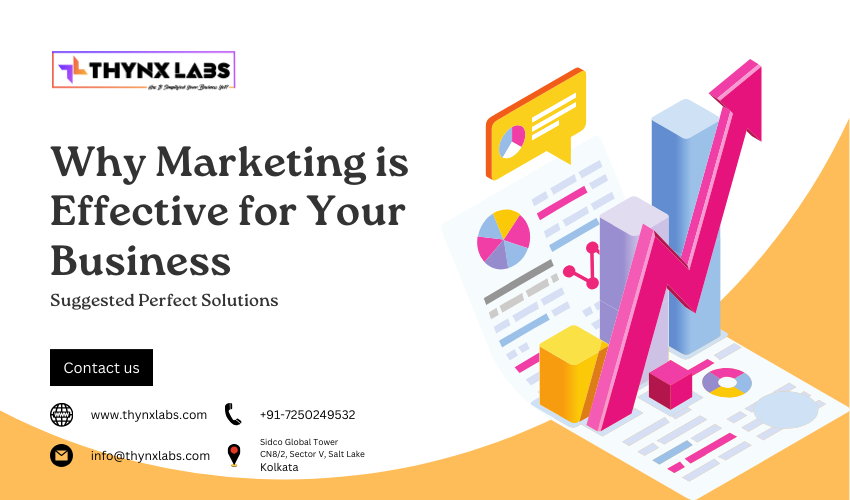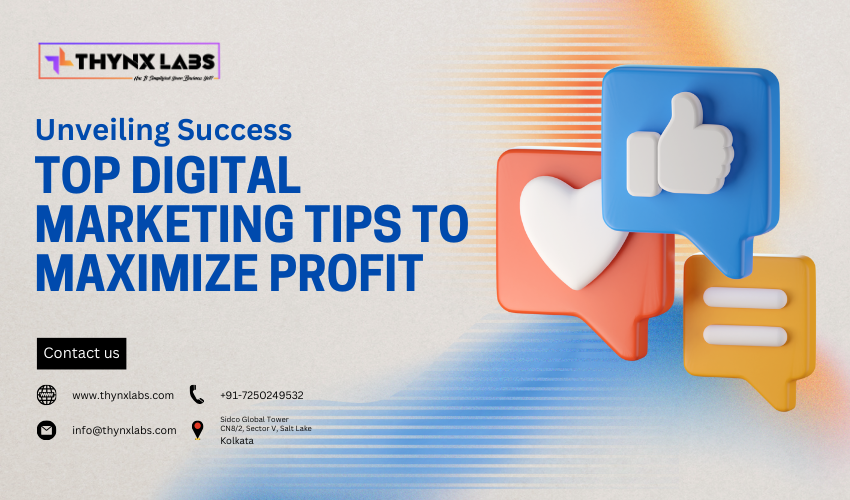Using AI as a Tool to Benefit Your Marketing Team
Introduction
In the ever-evolving landscape of digital marketing, staying ahead is not just an advantage but a necessity. One such tool that has revolutionized the marketing game is Artificial Intelligence (AI). This article explores the myriad ways in which AI can be leveraged to benefit your marketing team, from enhancing efficiency to unlocking new avenues for customer engagement.
Understanding AI in Marketing
A. Defining Artificial Intelligence
AI refers to the simulation of human intelligence in machines programmed to think and learn like humans. In marketing, AI is utilized to automate tasks, analyze data, and make data-driven decisions.
B. The Evolution of AI in Marketing
Explore the historical progression of AI in marketing, from its early applications to the sophisticated algorithms and machine learning models employed today.
Enhancing Customer Experience
A. Personalized Marketing Campaigns
AI algorithms analyze vast amounts of data to understand individual preferences, enabling marketers to create highly targeted and personalized campaigns.
B. Chatbots for Instant Customer Interaction
Implementing AI-powered chatbots allows for real-time customer interaction, providing instant responses to queries and enhancing the overall customer experience.
Data-Driven Decision Making
A. Predictive Analytics
AI analyzes historical data to make predictions about future trends, helping marketing teams make informed decisions on strategy and resource allocation.
B. Improved ROI through Smart Insights
AI tools provide actionable insights into marketing performance, enabling teams to optimize campaigns for better return on investment.
Streamlining Marketing Operations
A. Automated Email Marketing
AI automates email campaigns, allowing for personalized and timely communication with leads and customers, ultimately improving conversion rates.
B. Social Media Management
AI tools can schedule posts, analyze engagement patterns, and suggest content strategies, streamlining the management of social media accounts.
Targeting the Right Audience
A. Precision in Ad Targeting
AI-driven algorithms analyze user behavior to target ads more effectively, ensuring that marketing efforts are focused on the audience most likely to convert.
B. Segmenting Audiences for Personalized Content
By segmenting audiences based on behavior and preferences, AI enables marketers to deliver content that resonates with specific customer segments.
Content Creation and Optimization
A. AI-Generated Content
Explore the use of AI in content creation, from generating blog posts to creating compelling product descriptions, saving time for marketing teams.
B. SEO Optimization
AI tools assist in optimizing content for search engines, ensuring that marketing materials rank higher and attract more organic traffic.
Overcoming Marketing Challenges
A. Addressing Information Overload
AI helps filter through vast amounts of data, preventing marketing teams from being overwhelmed and ensuring they focus on the most relevant information.
B. Adapting to Dynamic Market Trends
Explore how AI algorithms can analyze market trends in real-time, helping marketing teams adapt quickly to changes in consumer behavior and preferences.
Future Trends in AI Marketing
A. Integration of AI with Emerging Technologies
Explore the potential of AI in conjunction with technologies like augmented reality and virtual reality for innovative marketing strategies.
B. Ethical Considerations in AI Marketing
As AI becomes more integral, delve into the ethical considerations and responsible use of AI in marketing practices.
Conclusion
In conclusion, embracing AI as a tool for your marketing team opens doors to unprecedented efficiency, personalized customer experiences, and data-driven decision-making. As technology continues to advance, integrating AI into your marketing strategy is not just a choice; it's a strategic imperative.
FAQs
Q1: Is AI only suitable for large marketing teams?
AI tools come in various scales, and many are designed to accommodate the needs of small to medium-sized marketing teams. The key is to identify the specific requirements of your team and choose the right AI solutions accordingly.
Q2: How can AI help in creating engaging content?
AI tools can analyze trends, consumer behavior, and preferences to suggest content ideas. They can also generate content, including articles and social media posts, based on specified parameters.
Q3: Are there risks associated with relying on AI for marketing decisions?
While AI offers immense benefits, there are risks such as biased algorithms and data privacy concerns. It's crucial for marketing teams to implement AI responsibly and ethically.
Q4: Can AI be integrated with existing marketing software?
Yes, many AI tools are designed to integrate seamlessly with existing marketing software and platforms, enhancing their capabilities and providing additional insights.
Q5: How quickly can a marketing team see results after implementing AI?
The timeline for seeing results depends on factors such as the complexity of AI implementation, the size of the dataset, and the specific goals of the marketing team. However, many teams experience tangible benefits relatively quickly after adopting AI tools.


